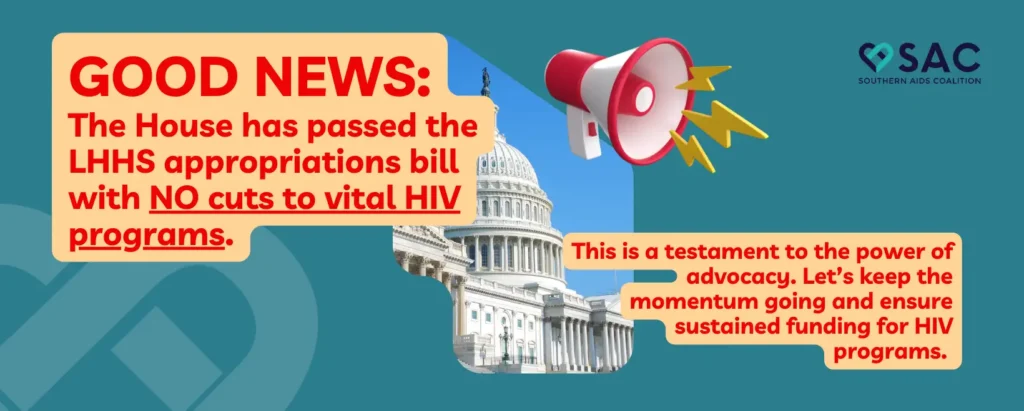After months of negotiations and intense discussions among stakeholders in Congress, we’re thrilled to announce that the House has passed the second minibus spending package, which includes the LHHS appropriations bill, WITHOUT any cuts to HIV programs! This is a monumental win for advocacy efforts nationwide.
Despite facing significant funding challenges, persistent advocacy has prevailed. Efforts to slash $767 million from critical HIV programs like the Ending the HIV Epidemic Initiative (EHE), Minority AIDS Initiative (MAI), and Ryan White HIV/AIDS Program were met with resistance. Our collective voices were heard, and Congress has responded by safeguarding essential HIV programs. Together, we’ve truly made a difference.
But our work isn’t finished yet. We must remain vigilant and continue to advocate for sustained funding for HIV programs. Together, we can ensure that everyone impacted by HIV has access to the care and support they need. Our next focus is the FY 25 budget, where we’ll continue to urge legislators to prioritize and protect HIV-related funding. Let’s keep pushing forward!
A heartfelt thank you to all the advocates who tirelessly fought to prevent cuts to HIV-related funding! Your dedication and perseverance have been instrumental in achieving today’s victory. Let’s continue to stand together and work towards ending the HIV epidemic!

